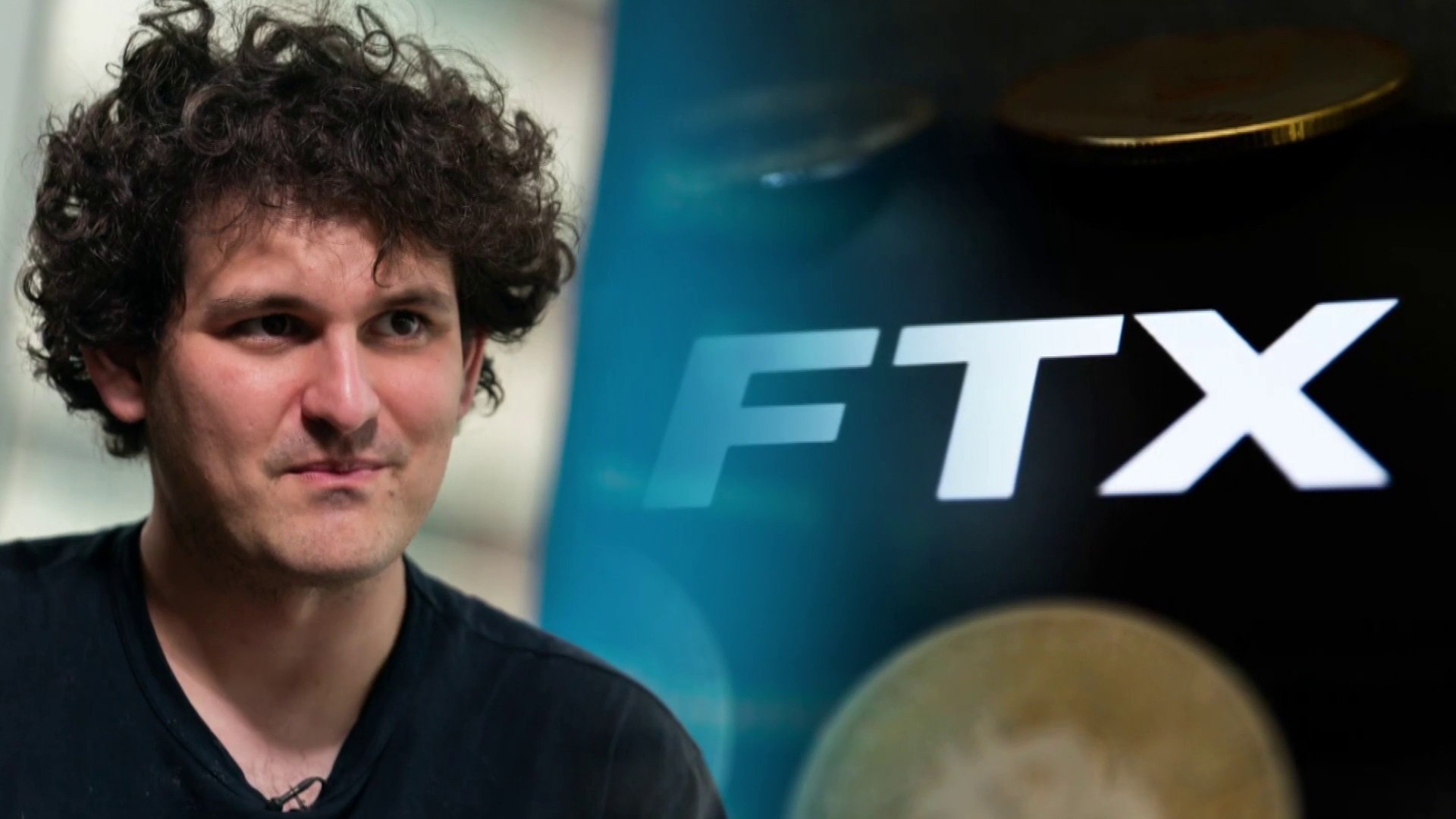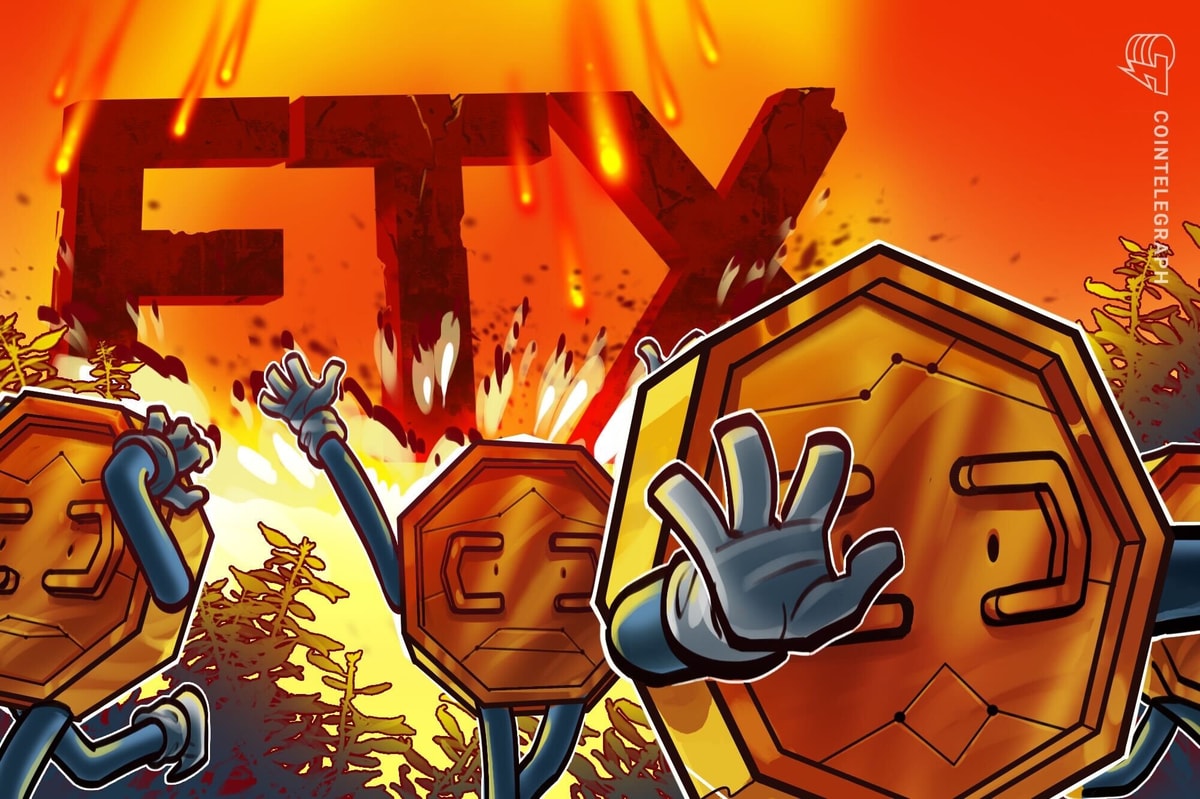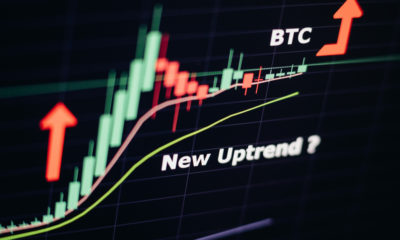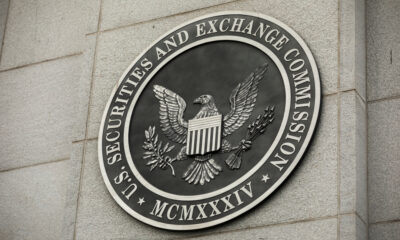Alameda Research
Insights Into Alameda’s Financial Stability In FTX Trial
Published
9 months agoon
By
admin
The trial against FTX co-founder Sam Bankman-Fried took an intriguing turn as Zac Prince, the CEO of defunct crypto lender BlockFi, provided testimony in a Manhattan federal courtroom.
Prince’s appearance provided valuable insights into the intricate relationship between BlockFi, FTX, and Alameda Research.
BlockFi’s Bankruptcy Rooted In Alameda And FTX
According to a Bloomberg report, Prince revealed that BlockFi had substantial exposure to Alameda and FTX, estimated at around $1 billion, at the time of BlockFi’s failure in November 2022.
Prince asserted that if the loans to Alameda were still in good standing and the funds on FTX were available, BlockFi would not have filed for bankruptcy. This statement suggests that BlockFi’s financial troubles were closely tied to the collapse of Alameda and FTX.
Prince’s testimony diverged significantly from Caroline Ellison, the government’s star witness, who portrayed Bankman-Fried as the mastermind behind a fraudulent scheme using FTX customer funds for speculative trading at Alameda.
Prince’s account positioned BlockFi as a victim of Bankman-Fried’s alleged schemes, claiming that BlockFi made loans to Alameda based on misleading balance sheets.
Defense lawyers sought to emphasize that BlockFi willingly provided the loans to Alameda, with knowledge of the associated risks.
Creditors Accuse BlockFi Of Inadequate Due Diligence
Prince discussed BlockFi’s due diligence process regarding Alameda’s collateral, comprised of tokens affiliated with FTX. The judge requested plainer terms during Prince’s explanation, prompting an analogy using car loans.
Per the report, the prosecution questioned the adequacy of BlockFi’s due diligence, as creditors accused the company of failing to recognize warning signs before offering substantial loans to Alameda.
Prince’s testimony highlighted that providing “unaudited balance sheets” is an industry norm for borrowers seeking loans. The defense sought to establish that BlockFi knew the risks of lending to Alameda and acted within industry norms.
Zac Prince’s testimony in the trial against Sam Bankman-Fried provided a deeper understanding of the intertwined relationships within the crypto industry. BlockFi’s exposure to Alameda and FTX and its subsequent bankruptcy offered insights into the potential repercussions of alleged fraudulent activities.
The differing narratives presented by the prosecution and defense underscore the complexities of the case. As the trial unfolds, the court will continue to examine the details surrounding BlockFi’s lending practices and the extent of Bankman-Fried’s involvement in the alleged schemes.
It is important to note that BlockFi can no longer be utilized for crypto-related activities, as the company declared bankruptcy and suspended withdrawals in November 2022. The bankruptcy filing indicates that BlockFi owes between $1 billion and $10 billion to over 100,000 creditors.
Featured image from NBC, chart from TradingView.com
Source link
You may like


Multicoin Capital To Fund Crypto-Friendly US Candidates In Solana


Multicoin to Match Up to $1 Million in Solana Donations to Pro-Crypto Candidates


Multicoin Capital pledges up to $1m to pro-crypto Senate candidates


MATIC Price Crash: Reaching A Two Year Low


Multicoin Pledges up to $1M for Pro-Crypto Senate Candidates


Crypto heists near $1.4b in first half of 2024: TRM Labs
Alameda Research
Alameda-Backed Mining Firm Genesis Digital Assets Considering IPO in US: Report
Published
2 days agoon
July 3, 2024By
admin
A Bitcoin (BTC) mining firm backed by disgraced FTX founder Sam Bankman-Fried is reportedly considering an initial public offering (IPO) in the US.
According to a new report by Bloomberg, anonymous sources familiar with the matter say that Genesis Digital Assets, which is backed by Alameda Research, is currently working with advisors on the potential listing.
Alameda Research was once the investing branch of the former crypto exchange FTX.
One of the sources divulged that the firm is planning on launching a pre-IPO funding round in the coming weeks.
Genesis Digital Assets, which has its roots in 2014, eventually started large-scale operations in China before the nation banned the entire industry in 2021. Then, the company raised $550 million and moved to the US, according to the report.
Between 2021 and 2022, Alameda Research invested over $1 billion into Genesis Digital Assets, before the FTX empire collapsed and Bankman-Fried was accused and subsequently found guilty of defrauding investors and mishandling billions of dollars worth of customer funds.
In April 2022, Genesis Digital Assets was valued at $5.5 billion, according to an internal company memo seen by Bloomberg News. However, when FTX collapsed in November 2022, the digital assets industry saw sharp price decreases across the board.
Don’t Miss a Beat – Subscribe to get email alerts delivered directly to your inbox
Check Price Action
Follow us on X, Facebook and Telegram
Surf The Daily Hodl Mix
 

Disclaimer: Opinions expressed at The Daily Hodl are not investment advice. Investors should do their due diligence before making any high-risk investments in Bitcoin, cryptocurrency or digital assets. Please be advised that your transfers and trades are at your own risk, and any losses you may incur are your responsibility. The Daily Hodl does not recommend the buying or selling of any cryptocurrencies or digital assets, nor is The Daily Hodl an investment advisor. Please note that The Daily Hodl participates in affiliate marketing.
Featured Image: Shutterstock/aslysun
Source link
Alameda Research
Sam Bankman-Fried Found Guilty of Committing Billion-Dollar Fraud at FTX and Alameda Research
Published
8 months agoon
November 3, 2023By
admin
Sam Bankman-Fried has been found guilty of spearheading a billion-dollar fraud against customers and investors at the crypto exchange FTX and trading firm Alameda Research.
A jury has found Bankman-Fried guilty on all seven charges against him, including wire fraud and conspiracy to commit wire fraud against FTX’s customers, wire fraud and conspiracy to commit wire fraud against Alameda’s lenders, conspiracy to commit securities fraud against FTX’s investors, conspiracy to commit commodities fraud against FTX’s customers and conspiracy to commit money laundering.
The jury took just four hours to reach a verdict.
Bankman-Fried was arrested in December after the epic collapse of his former crypto empire.
Prosecutors accused him of stealing billions of dollars in FTX customer deposits to purchase investments, loan repayments, political donations and real estate.
Former FTX chief technology officer Gary Wang, former head of engineering Nishad Singh and former Alameda CEO Caroline Ellison testified against Bankman-Fried at the trial, saying they had carried out his orders.
Bankman-Fried testified that he did not knowingly defraud anyone, although he admitted there were “significant oversights” at his companies.
“A lot of people got hurt – customers, employees. And the company ended up in bankruptcy. I made a number of small mistakes and a number of larger mistakes.”
Sentencing is expected to take place early next year.
Bankman-Fried faces a total possible sentence of 115 years in prison.
Don’t Miss a Beat – Subscribe to get email alerts delivered directly to your inbox
Check Price Action
Follow us on Twitter, Facebook and Telegram
Surf The Daily Hodl Mix
 

Disclaimer: Opinions expressed at The Daily Hodl are not investment advice. Investors should do their due diligence before making any high-risk investments in Bitcoin, cryptocurrency or digital assets. Please be advised that your transfers and trades are at your own risk, and any loses you may incur are your responsibility. The Daily Hodl does not recommend the buying or selling of any cryptocurrencies or digital assets, nor is The Daily Hodl an investment advisor. Please note that The Daily Hodl participates in affiliate marketing.
Featured Image: Shutterstock/arleksey
Source link
Alameda Research
Secret Alameda recording reveals exact moment staff learned about FTX deposits
Published
9 months agoon
October 14, 2023By
admin

A 75-minute secretly recorded audio clip of Caroline Ellison has revealed the exact moment 15 former Alameda Research staff found out the trading firm was “borrowing” user funds from FTX.
The full-length recording obtained by Cointelegraph provides fresh insights into the palpable tension Ellison and Alameda staff felt in the lead-up to FTX’s collapse.
“Alameda was kind of borrowing a bunch of money via open-term loans and using that to make various illiquid investments. So like a bunch of FTX and FTX US equity […] Most of Alameda’s loans got called in in order to meet those recalls,” Ellison explained during an all-hands meeting in Hong Kong on Nov. 9, 2022.
“We ended up borrowing a bunch of funds from FTX, which led to FTX having a shortfall in user funds.”
“[FTX] basically always allowed Alameda to borrow users’ funds,” she added, speaking to the 15 or so staff in the meeting.
Select segments of the audio recording of the meeting were also played before the court on the eighth day of Sam Bankman-Fried’s criminal trial on Oct. 12, which was part of witness testimony from Christian Drappi, a former software engineer at Alameda.
Drappi’s appearance on the witness stand came immediately following nearly three days of Ellison’s testimony. It is understood that before the meeting, Drappi and many other Alameda employees had no idea that the hedge fund had allegedly been using FTX customer deposits to prop up its trading activity.
In the recording, Drappi is also overheard asking Ellison when she became aware that Alameda was misusing FTX user deposits and who else at the company had known about it.
Initially, Ellison shied away from answering, but Drappi pressed again:
“I’m sure this wasn’t, like, a YOLO thing, right?”
Related: Changpeng Zhao’s tweet ‘contributed’ to collapse of FTX, claims Caroline Ellison
According to court reporting from the trial, the playback of this audio led to one of the more humorous moments in court, where Drappi had to explain the term “YOLO” to everyone in attendance, saying that he wanted Ellison to confirm that the use of FTX deposits hadn’t just been a “spontaneous” decision.
In his testimony, Drappi also described Ellison’s conduct at the meeting as “sunken” and didn’t display much in the way of confidence to Alameda employees. He said he was “stunned” to learn about the extent of the relationship between FTX and Alameda and quit the next day.
Speaking to Cointelegraph, Alameda Research engineer Aditya Baradwaj, who was also present at the meeting, said the room was “extremely tense,” with Ellison surfacing a wealth of new information that had “never been discussed internally” — including the later-abandoned acquisition of FTX by its then-largest competitor Binance.
“It became pretty clear that there was no future for the company and that we all had to leave. And we did that right after,” said Baradwaj.
Collect this article as an NFT to preserve this moment in history and show your support for independent journalism in the crypto space.
Magazine: How to protect your crypto in a volatile market — Bitcoin OGs and experts weigh in
Source link

Multicoin Capital To Fund Crypto-Friendly US Candidates In Solana

Multicoin to Match Up to $1 Million in Solana Donations to Pro-Crypto Candidates

Multicoin Capital pledges up to $1m to pro-crypto Senate candidates

MATIC Price Crash: Reaching A Two Year Low

Multicoin Pledges up to $1M for Pro-Crypto Senate Candidates

Crypto heists near $1.4b in first half of 2024: TRM Labs

FTX Founder Sam Bankman-Fried’s Family Accused Of $100M Illicit Political Donation

Bitcoin Price Falls as Mt Gox Starts Repayments

20% Price Drop Follows $87 Million Spending Outrage

More than 10 years since the collapse of Mt. Gox, users confirm reimbursements

Leading Telecom Company Taiwan Mobile Gets Crypto Exchange License

Here Are Price Targets for Bitcoin, Solana, and Render, According to Analyst Jason Pizzino

Bitcoin price plunges below $55k as Mt. Gox announces repayments

Jasmy Sheds 20% Amid Bitcoin Sell-Off

Are they a good thing?

Bitcoin Dropped Below 2017 All-Time-High but Could Sellers be Getting Exhausted? – Blockchain News, Opinion, TV and Jobs

What does the Coinbase Premium Gap Tell us about Investor Activity? – Blockchain News, Opinion, TV and Jobs
BNM DAO Token Airdrop

NFT Sector Keeps Developing – Number of Unique Ethereum NFT Traders Surged 276% in 2022 – Blockchain News, Opinion, TV and Jobs
A String of 200 ‘Sleeping Bitcoins’ From 2010 Worth $4.27 Million Moved on Friday
New Minting Services

Block News Media Live Stream

SEC’s Chairman Gensler Takes Aggressive Stance on Tokens – Blockchain News, Opinion, TV and Jobs

Friends or Enemies? – Blockchain News, Opinion, TV and Jobs

Enjoy frictionless crypto purchases with Apple Pay and Google Pay | by Jim | @blockchain | Jun, 2022

How Web3 can prevent Hollywood strikes

Block News Media Live Stream

Block News Media Live Stream

Block News Media Live Stream

XRP Explodes With 1,300% Surge In Trading Volume As crypto Exchanges Jump On Board
Trending

 Altcoins2 years ago
Altcoins2 years agoBitcoin Dropped Below 2017 All-Time-High but Could Sellers be Getting Exhausted? – Blockchain News, Opinion, TV and Jobs

 Binance2 years ago
Binance2 years agoWhat does the Coinbase Premium Gap Tell us about Investor Activity? – Blockchain News, Opinion, TV and Jobs
- Uncategorized3 years ago
BNM DAO Token Airdrop

 BTC1 year ago
BTC1 year agoNFT Sector Keeps Developing – Number of Unique Ethereum NFT Traders Surged 276% in 2022 – Blockchain News, Opinion, TV and Jobs

 Bitcoin miners2 years ago
Bitcoin miners2 years agoA String of 200 ‘Sleeping Bitcoins’ From 2010 Worth $4.27 Million Moved on Friday
- Uncategorized3 years ago
New Minting Services

 Video2 years ago
Video2 years agoBlock News Media Live Stream

 Bitcoin1 year ago
Bitcoin1 year agoSEC’s Chairman Gensler Takes Aggressive Stance on Tokens – Blockchain News, Opinion, TV and Jobs

